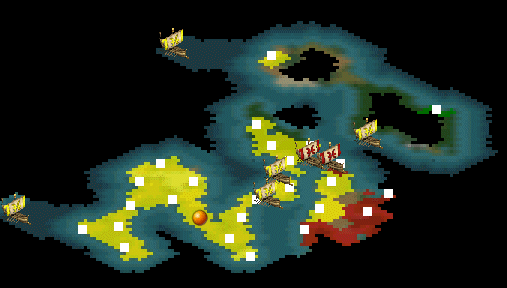Actually, Thrawn05 makes a good point... I'm playing the Banana Island game that Sir Ralph designed (waaay fun, btw), and being willing to lose some Galleys is critical.
(BUT, losing 2 Galleys and 4 Swordsmen in my first overseas attack was probably the most painful event in the history of Civ)
Glad to see you hanging around, Soren.
(BUT, losing 2 Galleys and 4 Swordsmen in my first overseas attack was probably the most painful event in the history of Civ)
Glad to see you hanging around, Soren.




 Zachriel had to repeat this same stuff for people to get it.
Zachriel had to repeat this same stuff for people to get it. 
Comment